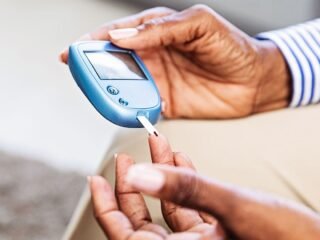New Delhi, 29 October, 2025: Strokes have traditionally been associated with older age and established cardiovascular risks. However, specialists are now sounding the alarm about a growing trend: young adults experiencing strokes, and a significant culprit under-recognised in this shift— chronic sleep disorders.
On this year’s World Stroke Day (October 29), experts are insisting that sleep quality and sleep health must move to the frontline of stroke prevention.
Sleep Disorders and Stroke: What’s the Link?
Sleep disorders are far more than just an inconvenience. They disrupt essential physiological processes that protect the heart and brain. Persistent lack of sleep or poor-quality rest causes fluctuations in blood pressure, inflammation, and reduced oxygen levels — all of which can damage blood vessels and raise the risk of stroke.
Even in individuals without traditional risk factors like hypertension, diabetes, or obesity, sleep-related disturbances are emerging as an independent risk factor for stroke. Specialists warn that untreated sleep apnea or chronic insomnia can elevate stroke risk by two to four times.
How Sleep Problems Increase Stroke Risk
The relationship between sleep disorders and stroke is rooted in how poor sleep affects the cardiovascular system and blood flow to the brain.
1. Intermittent Oxygen Deprivation
In conditions such as obstructive sleep apnea (OSA), breathing repeatedly stops during sleep due to airway blockage. Each episode deprives the body of oxygen and causes stress on the heart and brain. These oxygen drops trigger sudden surges in blood pressure, irregular heartbeats, and inflammation — all of which can lead to blood vessel damage and clot formation.
2. Chronic Inflammation and Vessel Damage
People who suffer from long-term insomnia or disrupted sleep cycles often experience higher levels of inflammation in the body. This chronic inflammation weakens the endothelial lining of blood vessels, making them prone to narrowing or rupture — both major triggers for stroke.
3. Uncontrolled Blood Pressure Surges
Normally, blood pressure dips at night during restful sleep. However, poor or fragmented sleep prevents this “nocturnal dip,” and can even cause spikes during the night or early morning hours. This constant pressure on blood vessels increases the likelihood of both ischemic (clot-related) and hemorrhagic (bleeding) strokes.
4. Increased Blood Clotting
Disrupted sleep and oxygen deprivation stimulate the body’s clotting mechanism. Blood becomes “stickier,” raising the risk of clot formation inside cerebral arteries — which can abruptly block blood flow to the brain.
5. Hormonal and Metabolic Disruptions
Chronic sleep deprivation leads to hormonal imbalances — elevated cortisol (stress hormone) and reduced insulin sensitivity. These changes increase blood sugar levels and cholesterol buildup, setting the stage for cardiovascular and cerebrovascular disease.
Why Young Adults Are at Growing Risk
Doctors are observing a sharp rise in strokes among individuals in their 20s and 30s — an age group previously thought to be largely protected. Modern urban lifestyles are playing a major role:
- Erratic work schedules and late-night shifts disrupt the body’s natural circadian rhythm.
- Prolonged screen exposure suppresses melatonin, delaying sleep onset.
- High stress levels, caffeine dependence, and inactivity worsen sleep quality.
- Undiagnosed sleep apnea linked to obesity and poor fitness is becoming common among young adults.
Many of these individuals don’t smoke or have diabetes, yet they develop strokes due to chronic sleep loss, constant fatigue, and untreated breathing disorders at night. In some cases, the only identifiable trigger is sleep deprivation.
Recognising Sleep Disorders Early
Identifying sleep disorders early can significantly lower stroke risk. Some tell-tale warning signs include:
- Loud, frequent snoring, gasping, or choking during sleep
- Persistent fatigue or drowsiness even after full-night rest
- Difficulty concentrating, morning headaches, or mood swings
- Difficulty falling or staying asleep for several nights a week
- Highly irregular sleep timings — varying bedtime and wake-up hours daily
Unfortunately, most young adults tend to ignore these red flags, mistaking them for work stress or lifestyle fatigue. Experts suggest undergoing a sleep study (polysomnography) if any of these symptoms persist for more than a few weeks.






